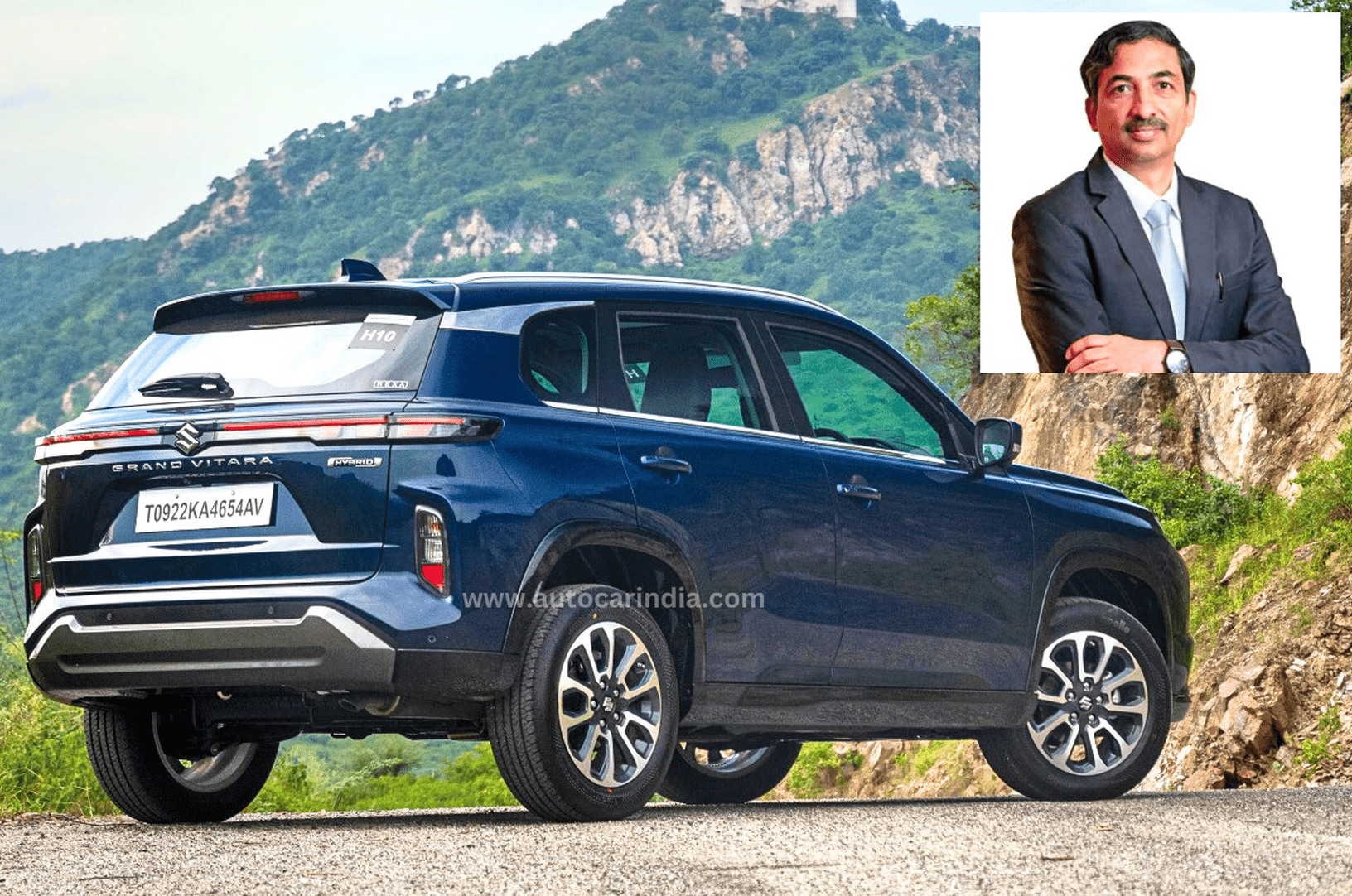Maruti’s Rahul Bharti said that the Grand Vitara hybrid produces 26 percent lower CO2 and is 36 percent more efficient than its petrol counterpart.
Maruti Suzuki is doubling down on its stance on hybrid vehicles, with the brand’s executive director, corporate affairs, Rahul Bharti, saying that strong hybrids should be considered as a replacement for petrol and diesel models, and not as a competitor to EVs. “The debate is not between EV and strong hybrid. Both are excellent technologies. Both need to be encouraged. The debate is between strong hybrids and IC engines. I cannot imagine a situation, and nobody can justify why IC engines should be preferred over strong hybrid,” he said at a recent media interaction.
- Maruti Invicto hybrid is said to be a 44 percent more frugal than petrol
- Hybrids do reduce emissions and increase efficiency; needed in the mid-term
- Maruti Fronx facelift to get new series hybrid tech in 2025
Bharti went on to say that a recent report by a known think tank – claiming that hybrids do not reduce emissions and that strong hybrids are mostly used in pure petrol mode – is factually incorrect. He said, “In a strong hybrid electric vehicle, it is the computer that optimises both drivetrains, the IC engine and the battery motor combination, and there is no option given to the driver to run in pure ICE mode.”
The executive director has also said that Maruti’s Grand Vitara and Invicto hybrids produce 26 percent and 30 percent lower CO2 emissions, while increasing fuel-efficiency by 36 percent and 46 percent, respectively, compared to their petrol counterparts. “So, definitely strong hybrids are a very powerful way to cut oil imports, generate energy efficiency, and reduce CO2 immediately without the pressure of range anxiety or lack of charging infrastructure.”
Not only is Maruti Suzuki one of the few mass-market carmakers in India to offer a hybrid option, the brand is set to expand its petrol-electric portolio, starting next year. Along with the series-parallel hybrid tech used in the Grand Vitara and Invicto (and shared with Toyota), Maruti will soon offer a new series hybrid powertrain, and the first model to benefit will be the Fronx facelift. The company will also be bringing its first all-electric vehicle, the eVX, to the market in 2025.
Bharti expounded on the balance between hybrids and EVs, saying “So, what we are saying is that we should try to maximize EVs, and that still leaves a lot of room for IC engines because EV cars will not reach a penetration of 100 or 80 percent in the next 10 to 15 years. For the balance ICE vehicles, can we do something to improve CO2 or improve energy efficiency?” In this context, hybrids are a logical mid-term strategy.
The Indian government is mulling reducing taxes on hybrids, but the still nascent policy is seeing opposition from the likes of Tata Motors. Brands like Mahindra, Kia and Hyundai have announced that they are actively looking at hybrids, but all also have definitive EV plans. At the moment, the only mass-market carmakers offering hybrid models are Maruti, Toyota and Honda. It should also be noted that hybrids are finding favour with Indian car buyers and outselling EVs, despite a limited choice of models on offer.
Also see:
EV vs Hybrid vs Diesel comparison: Which midsize SUV is best?
Suzuki working on affordable small hybrids, confirms Maruti chairperson
























